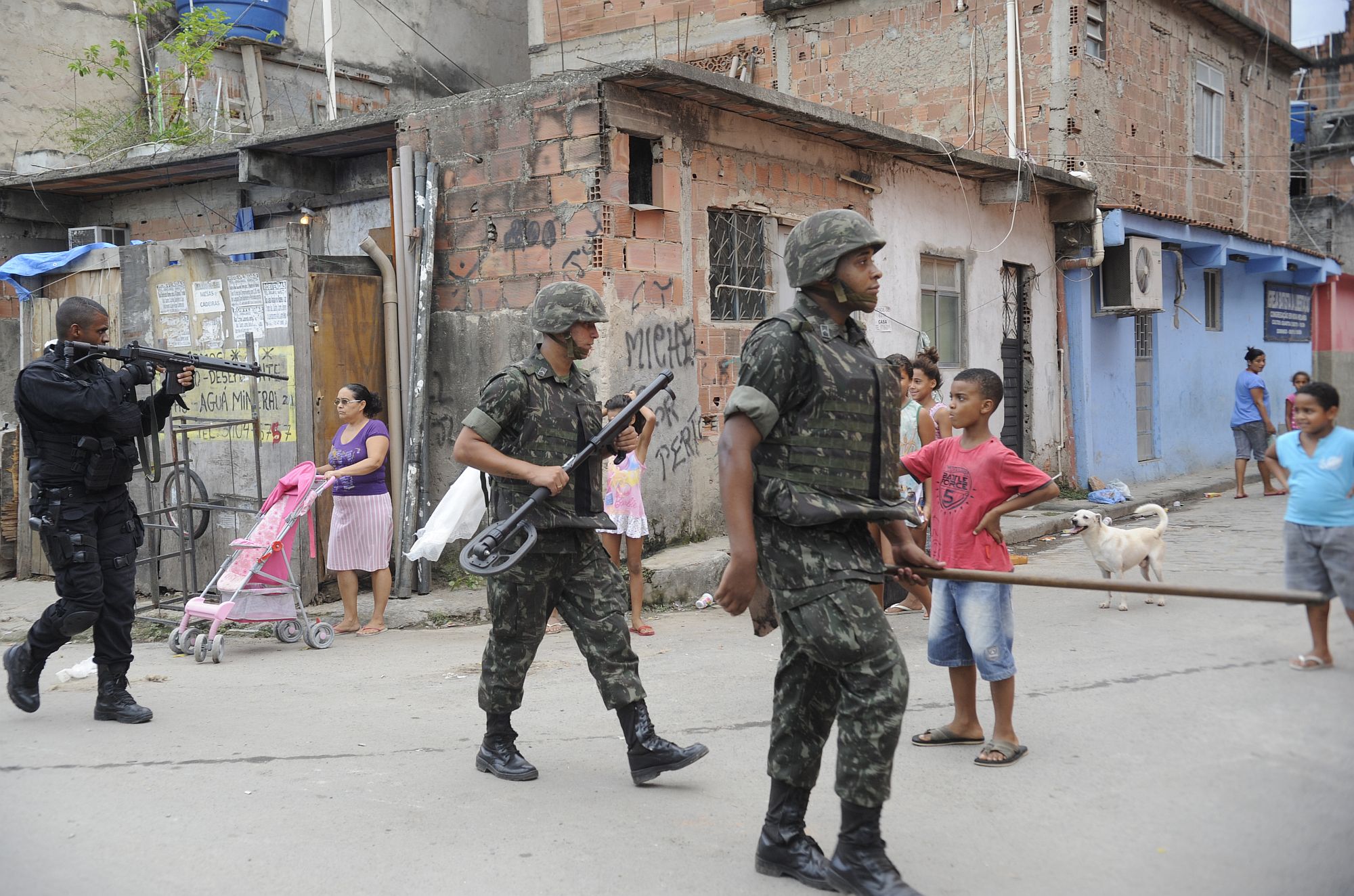Brazilian leaders said that the use of the military to combat rising violence in Rio de Janeiro could serve as a model for other violent areas of Brazil.
The armed forces officially took over Rio’s police on Friday under a decree signed by president Michel Temer. The measure still needed congressional approval, but the House of Representatives has already vote in favor of the measure.
The extraordinary move came after Rio’s governor asked for federal help following an exceptionally violent Carnaval season. During the holiday, there were several muggings, armed robberies and confrontations.
President Temer met with ministers and lawmakers to discuss the intervention.
“It’s important to understand that Rio de Janeiro is a laboratory,” institutional security minister Sergio Etchegoyen said after the meeting. “It’s the outward manifestation of a structural crisis.”
According to the Brazilian Forum of Public Security, Rio de Janeiro isn’t the most dangerous state in Brazil: in terms of violent intentional killings per 100,000 people, it ranked 11th in 2016. But Rio is in many ways Brazil’s face to the world and carries major weight within the country as home to much of its media and entertainment industries.
Secretary-general Wellington Moreira Franco, a key Temer adviser, said what happens in Rio will hopefully spread throughout Brazil.
“I believe that this is one more step along the road of being able to restore security, order and, above all, confidence to residents of Rio de Janeiro state,” Mr Franco said. “This spirit is being mobilized so that … this conversation, this methodology can spread throughout Brazil.”
The security situation in Rio has been deteriorating for at least two years as the state experiences a deep fiscal crisis, often resulting in late or no payments to its police officers.
The slide began just before the city hosted the 2016 Olympics, ahead of which it had ramped up policing. Those efforts, which focused on the hillside slums that are often controlled by drug traffickers, had some success.
But since the Games, battles among gangs and between gangs and the police have intensified. Major avenues are occasionally blocked for hours in shootouts and the number of people killed by stray bullets has risen dramatically.
But putting the military in charge also raises concerns about the heavy-handed tactics police have used. Amnesty International has already said that the decision to use soldiers would reinforce past mistakes by police. Rio is already the state with the most deaths during police operations.
Those concerns were fanned on Monday when defense minister Raul Jungmann said that the authorities would seek a broader kind of search warrant that, instead of specifying an address, might list an entire street or even neighborhood where a suspect is believed to be living.
President Temer and his ministers have gone to great lengths to emphasize that the president is ultimately in charge of the operation, providing civilian oversight of the military. That reflects deep unease in a society where many still remember the 1964-1985 military regime.
Criticism
Brazil’s lower house has approved a decree authorizing the federal government to dispatch military forces to intervene in security matters in the state of Rio de Janeiro. The bill has been approved by the senate too with 55 votes in favor and 13 against .
The bill, which allows Brazil’s army to take over command of police forces in the state and authorizes search warrants for entire communities, passed the lower house with 340 lawmakers voting in favor, 72 against and one abstention.
However, the legislation has garnered sharp criticism from civil society. Vagner Freitas, president of the Unified Workers’ Central, or CUT, said the people of Rio de Janeiro, and elsewhere in Brazil, do not need a “military intervention,” but a “social intervention,” one that expands and improves public education, legal employment and “first jobs for youth.”
Former Brazilian President Dilma Rousseff posted a message on her official Facebook page stating that Brazilian President Michel Temer’s “regime is closing its claws against the most vulnerable Brazilians who are in most need of justice.”
She noted that the “coup government initiative to promote collective search, seizure and arrest warrants is one of the worst violations of civil rights that Brazil confronts since the end of the dictatorship” and that it represents “yet another step in the deepening of the state of emergency in Brazil.”
Also, Brazil’s Association of Judges for Democracy released a statement saying that the military intervention in Rio de Janeiro state represents a direct violation of the country’s constitution.
MP/tS






